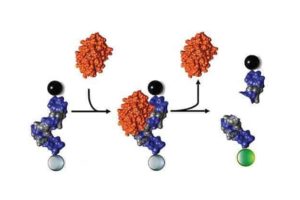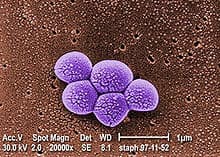staphylococcus aureus
Research shows how pathogenic bacteria hide inside host cells
A new study into Staphylococcus aureus, the bacterium which is responsible for severe chronic infections worldwide, reveals how bacteria have developed a strategy of hiding within host cells to escape the immune system as well as many antibacterial …
Plasma therapy: An alternative to antibiotics?
Cold plasma jets could be a safe, effective alternative to antibiotics to treat multi-drug resistant infections, says a study published this week in the January issue of the Journal of Medical Microbiology.
The team of Russian and German resea…
Outsmarting killer bacteria
Antibiotics can work miracles, knocking out common infections like bronchitis and tonsillitis. But according to the Center for Disease Control, each year 90,000 people in the U.S. die of drug-resistant “superbugs” ― bacteria like Staphylococcu…
Treatment for S. aureus skin infection works in mouse model
Scientists from the National Institutes of Health and University of Chicago have found a promising treatment method that in laboratory mice reduces the severity of skin and soft-tissue damage caused by USA300, the leading cause of community-asso…
Staph study could help with treatment for lupus
Researchers have for the first time described a method that Staphylococcus aureus (staph) infection uses to inactivate the body’s immune system. A protein produced by the staph bacteria causes previously healthy B cells — a specialized cell of the immune system — to commit suicide, a process called apoptosis. “By the targeted elimination of disease-causing B cells, properly dosed injections of SpA may have the potential to control the over-activity of the immune system that causes damage in autoimmune diseases like lupus and in certain cancers,” said Gregg Silverman, M.D., UCSD professor of medicine and senior author of the paper.
Researchers ID staph trick to kill off healthy cells
The method that Staphylococcus aureus (staph) infection uses to inactivate the body’s immune response and cause previously healthy B cells to commit suicide, is described for the first time by researchers at the University of California, San Diego (UCSD) School of Medicine. Normally, B cells mount an early defense against invading bacteria. From this immunologic experience, memory B cells are developed with the ability to quickly recognize these antigens and destroy the bacteria if they return in the future. When staph infections occur, however, this important process for immune defense can be corrupted.
Eczema all about infection






